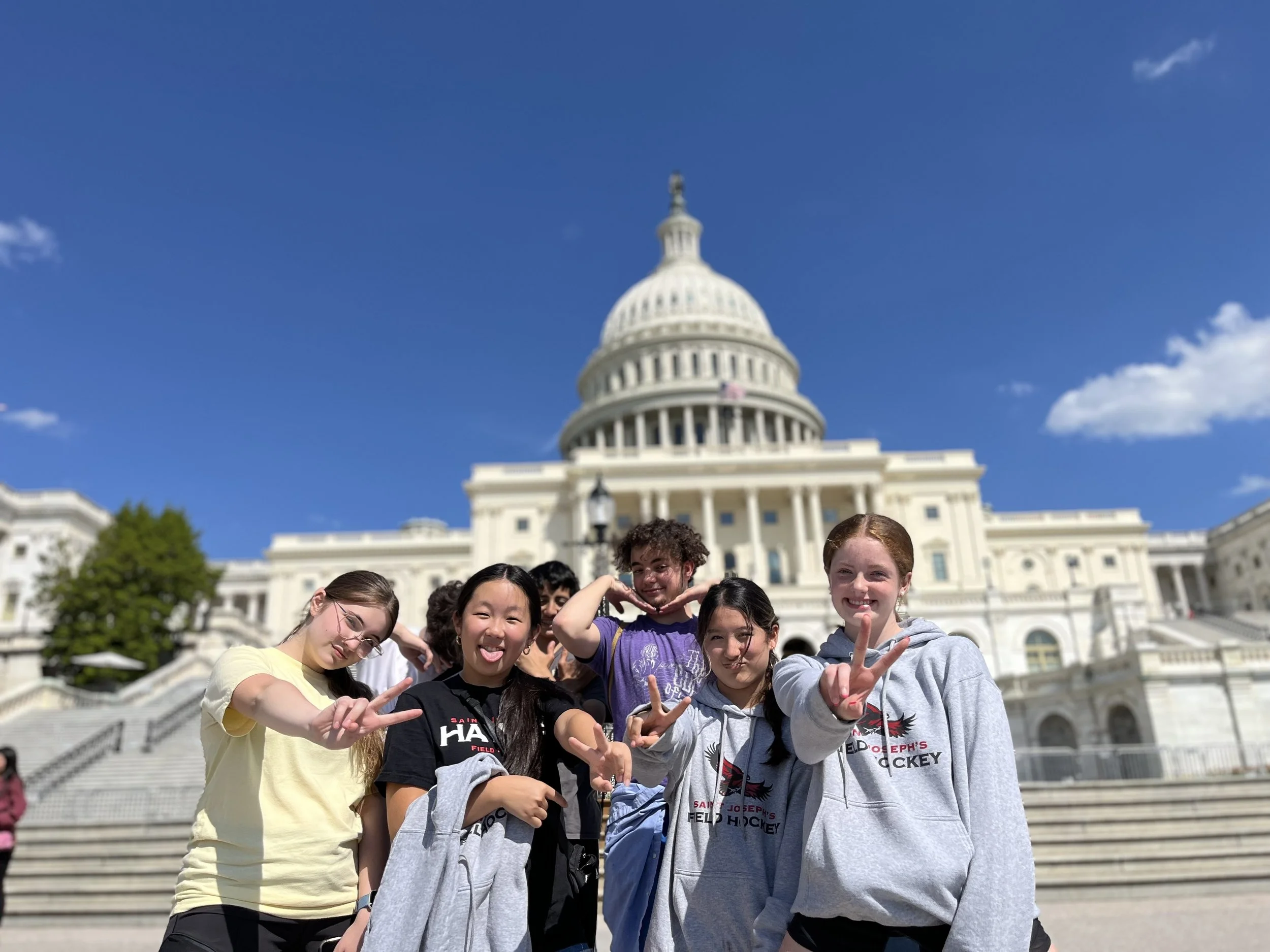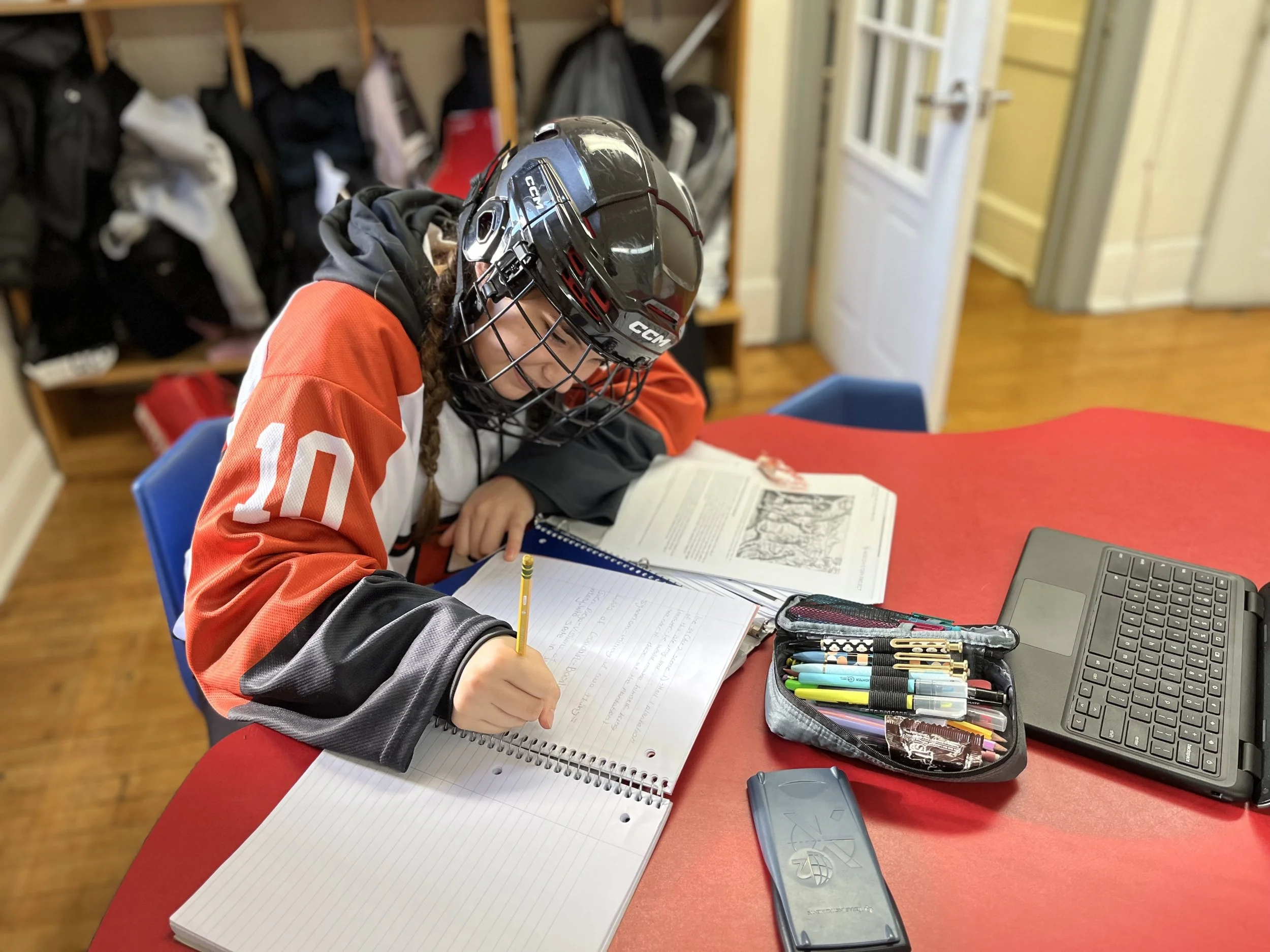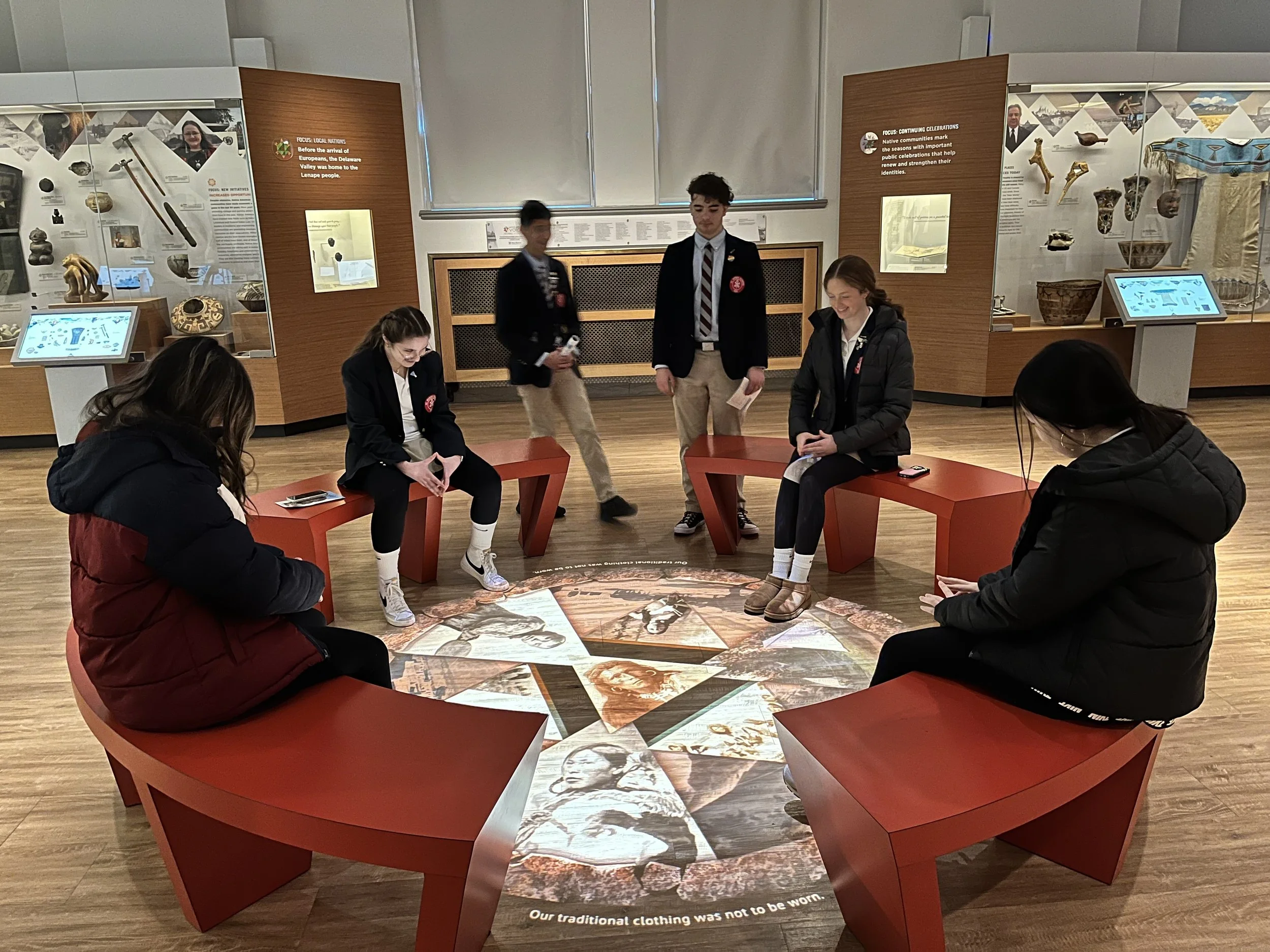
Eighth Grade
Humanities
The Eighth Grade uses a humanities model by combining history topics with literature at appropriate levels for the student. The Eighth Grade humanities themes are Adversity, Conflict, and Change.
Pollyanna (Racial Literacy Curriculum)
To encourage kindness, bravery, and empathy when exploring and better understanding the cultural and racial diversity of local and global communities.
To develop more inclusive and positive perspective of self, others, and the larger world in regard to race, ethnicity, and culture.
To analyze history and other social assertions that fabricate myths of innate racial superiority, in order to dispel myopic, discriminatory perspectives of race.
To analyze race as a primary institution of the United States.
To critique the biological fallacy of race, while simultaneously unpacking its social truths.
The underlying goal of the curriculum is to build bridges and connections––for all students to recognize similarities among their peers along lines of race, while also celebrating perceived differences.
Eighth Grade Theme: Racism as a Primary “Institution” of the U.S.--How We May Combat Systemic Inequality
Math
Eighth Grade Algebra is designed to deepen students' understanding of mathematical principles and to enhance their problem-solving and analytical skills. This course covers a range of topics essential for higher-level mathematics, including linear equations, functions, and quadratic expressions. Students will gain a comprehensive understanding of algebraic concepts through engaging lessons, practical applications, and collaborative activities. By the end of 8th Grade Algebra, students will have a strong grasp of algebraic principles, effective study habits, and the confidence to tackle more advanced mathematical challenges.
Science
Eighth Grade Science course is designed for students to meet the Next Generation Science Standards by practicing methods for exploring and investigating the world around us. Students will complete hands-on activities, projects, and problems that simulate concepts and situations, allowing them to build content knowledge and technical skills to prepare them for HS sciences better. Some units of study include food science, motion and forces, energy, work, and simple machines, and waves, electricity, and magnetism.
Project Based Learning
Project Based Learning (PBL) is a teaching method in which students learn by actively engaging in real-world and personally meaningful projects.
Students work on a project over an extended period of time – from a week up to a semester – that engages them in solving a real-world problem or answering a complex question. They demonstrate their knowledge and skills by creating a public product or presentation for a real audience.
As a result, students develop deep content knowledge, critical thinking, collaboration, creativity, and communication skills. Project-based Learning unleashes a contagious, creative energy among students and teachers.
Project Based Learning is a teaching method in which students gain knowledge and skills by working for an extended period of time to investigate and respond to an authentic, engaging, and complex question, problem, or challenge.
Program Highlights
All Lower Grade and Upper Grade students gain experience and confidence speaking publicly at monthly Declamations in front of their classmates in the Alumni Theater.
Students challenge themselves to master and declaim celebrated works of poetry and prose, including speeches, sonnets, excerpts from novels, plays and songs, and self-written works.
In the Upper Grade, students work to hone their declaiming skills, focusing on poise and appearance, dramatization, eye contact, voice and articulation, and pacing, as SPS faculty provides feedback on the performances and decides on one winner each month.
Mini Courses: These happen every trimester. Some of the mini-courses we have offered in the past are Leadership In Action, Drama, Health, Coding, Design Thinking, and more.





